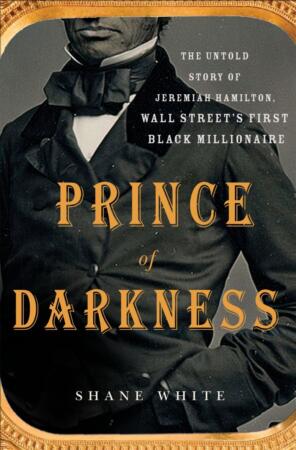
It might be time to bring back our “Consider This Story for Your Next Film” series that I introduced in 2013 or so (maybe earlier), because, since then, at least 3 of the ideas we’ve recommended eventually became actual film or TV projects (some still in development). We can add this one to the list…
It was in 2015 when I profiled the story of Jeremiah G. Hamilton – a man whose origins were said to be lowly, possibly born a slave, and who went on to become the richest black man in the United States during his time, in the 19th century, possessing a fortune of over $2 million (which would be in excess of $250 million in today’s currency).
Recycling what I reported 2 years ago, this larger than life story of a man who defied every convention of his time, boldly navigating a lily white financial world, marrying a white woman, owning mansions as well as stock in companies that wouldn’t do business with him (for example, he owned stock in railroad companies he was not legally allowed to ride, because he was black), and generally setting his white contemporaries on edge when he wasn’t outsmarting them, is told in author/historian Shane White’s book, “Prince of Darkness: The Untold Story of Jeremiah G. Hamilton, Wall Street’s First Black Millionaire.”
A groundbreaking and vivid account, and an important contribution to American history, the somewhat ominous title refers to – as I understand – both the fact that Hamilton was black, and also the unscrupulous methods he used to build his wealth, like exploiting fire victims after New York’s great fire of 1835.
Hamilton was the only African American broker on Wall Street in his day, and the only black millionaire in mid-nineteenth century New York. Yet he’s been all-but forgotten.
I learned about him 2 years ago when I listened to the BBC’s “Business Matters” podcast – the August 12, 2015 episode, during which author Shane White was a guest, there to talk about Jeremiah Hamilton and his book, which hadn’t been published at the time (it was eventually released on October 13, 2015 – the hardcover). Thankfully I saved that BBC podcast episode on my Soundcloud account, and it’s embedded below, so take a listen.
But in a nutshell, Jeremiah G. Hamilton wasn’t exactly the nicest of men, and used his cunning, Machiavellian tactics to amass his wealth – although, really, as I see it, he simply played the same game that other Wall Street tycoons did (and still do), and he won.

Now Hamilton’s story just might become a movie, as I recommended it should be, 2 years ago when I first learned of the man and read the book. According to The Hollywood Reporter, Don Cheadle has acquired the film and TV rights to Shane White’s “Prince of Darkness” with plans to adapt the book as a starring vehicle for himself, and he’s brought with him his “Miles Ahead” co-writer Steven Baigelman, to adapt the book.
No other information is available at this time; it’s likely still very early in the development process, so add this one to your list of projects to watch; I’m certainly adding to our growing list of biopics that are currently in the works.
Cheadle directed and starred in “Miles Ahead,” his last film; he’s starring in the “Prince of Darkness” adaptation, and will produce, but it’s not said whether he’ll direct it as well.
If you’d like to order a copy of White’s book, you can so here, which will take you to Amazon. It’s not very long (368 pages) and it’s definitely worth the read. It’s been a couple of years since I read it, but I’ll revisit it in a longer post after I breeze through it a second time, and take a look at how it might translate to film.
I’ve embedded the BBC “Business Matters” episode below, in which White discusses the larger than life Hamilton. It begins at around the 22-minute mark, so you can skip ahead.
A previous version of this article included a photo believed to be of Jeremiah G. Hamilton which was in fact not Jeremiah G. Hamilton, but Jeremiah J. Hamilton, and so was removed.

